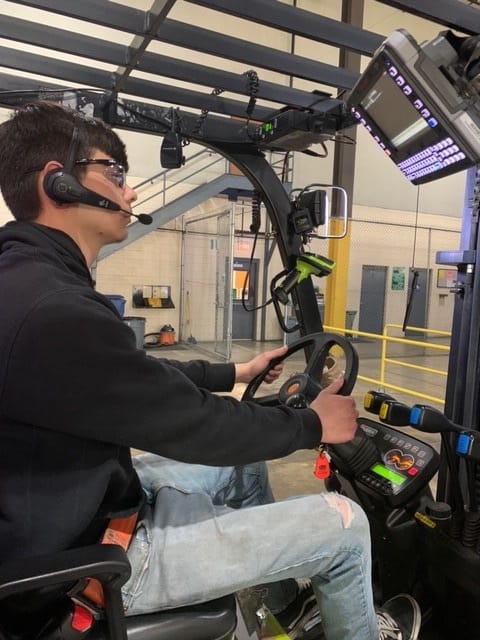
Voice-directed picking made easy
United Facilities is speeding the picking process and improving workflow with help from voice-automation solutions provider AccuSpeechMobile.

Third-party logistics service provider (3PL) United Facilities is seeing improvements in both the speed and accuracy of its picking process thanks to what company leaders call a simple, flexible voice-automated solution from AccuSpeechMobile, an Irvine, California-based company that offers a device-based voice solution for supply chain operations. The project has yielded big savings in a short time and is paving the way for even greater productivity enhancement across United Facilities’ operations.
The key differentiator from other voice offerings is the “device-based” nature of AccuSpeechMobile’s speech-recognition software, according to leaders from both companies. Device-based means it requires no voice server or middleware and no changes to a customer’s back-end system in order to operate. It also works independently of the cloud or a client’s network, making it ideal for firms that require the flexibility of working in a variety of IT (information technology) settings—as Peoria, Illinois-based United Facilities does.
“We had four different [warehouse management] systems we were using [across our network], so I could roll this out to any of them,” explains Peter Hawkins, director of operations for the mid-sized family-owned 3PL, which has 12 locations across the country. “For companies like ours, you need something that’s flexible, and AccuSpeechMobile is definitely flexible in that regard.”
Hawkins says United Facilities saw immediate results from applying the solution to the picking process at one of its warehouses earlier this year and has identified two other locations where company leaders think the technology can make a difference as well.
“Like most software solutions, AccuSpeechMobile [promises] 20% productivity improvement, and the truth is, that’s about where we’ve landed,” Hawkins said in mid-April, just two months after the system had gone live. “We’ve seen a remarkable improvement in piece-picking productivity and also accuracy.”
Speak To Me
Another key part of the AccuSpeechMobile offering is its “Speak-to-me-POC,” a “proof-of-concept” in which the firm asks potential clients to give it a day and a half to apply the solution to a workflow and test it, says company President and CEO Bob Bova.
Bova says he frames it as a “one and done” challenge, telling prospective users: “If after two days, you don’t see a difference, you’ll never hear from me again. We focus on your workflow. We look at what you’re doing and how you’re doing it.”
As Hawkins describes it, Bova and his team provided a “very good proof of concept” that offered a viable solution to help offset rising costs and labor demand associated with picking. Hawkins adds that two key features sold him on the product. The first was its “system-agnostic” nature, which allows it to integrate with any warehouse management, enterprise resource planning (ERP), enterprise asset management (EAM), or computerized maintenance management system (CMMS)—again, because the solution is 100% device-based. Bova adds that it works with nonproprietary hardware and runs on popular mobile devices, such as industrial handhelds, tablets, mobile phones, and intelligent scanners.
The second key feature that caught Hawkins’ attention was a voice countback system that helps the picker keep track of the number of stock-keeping-units (SKUs) picked for a particular job or order.
“That may sound like a small thing, but when you’re picking SKU after SKU, it’s easy to lose count,” Hawkins explains.
Bova says such benefits make picking the first place clients start when implementing the solution, but he says the sky’s the limit after that. Packing, shipping, putaway, inventory, and receiving can all be voice-automated, and the company says clients typically voice-automate more than 10 workflows throughout a facility.
United Facilities hopes to follow suit and apply the technology elsewhere.
“We have earmarked two other facilities where we think AccuSpeechMobile will be helpful, and then we will roll it out to our managers so they can take a look internally and see where they think it might work for them,” Hawkins says, adding that tasks requiring considerable hand-keying of information are prime candidates for the technology because it can help reduce errors. “We’re looking for [areas] where you have a lot of data to input and it’s quicker to use your voice.”
He’s also looking for ease of use.
“When you’re in the supply chain, you don’t want things to be too complex,” Hawkins explains. “It needs to be easy enough for people to use. And this is.”
Read the article in DC Velocity Magazine.
Read the article (page 58) in the DC Velocity Digital Edition .